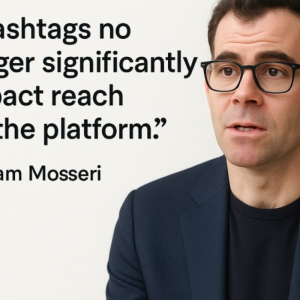In today’s interconnected world, controversies spread faster than ever. What begins in one part of the world can quickly create ripples across continents. This phenomenon has once again played out in India, where a recent controversy involving YouTuber Ranveer Allahbadia and stand-up comedian Samay Raina has led to a national outcry. The repercussions have extended beyond the two individuals, affecting India’s entire social media influencer community.
The Origins of the Controversy
The controversy erupted after comments made by Allahbadia on Raina’s YouTube comedy show, India’s Got Latent. The statements sparked outrage, leading to multiple FIRs (First Information Reports) being filed against them. The backlash was immediate and widespread, with people across the country calling for accountability.
In response to the public outcry, Allahbadia issued an apology and pledged full cooperation with investigating authorities. Meanwhile, Raina deleted all episodes of India’s Got Latent from YouTube. Despite Allahbadia’s apology, the Supreme Court of India criticized his remarks, although it temporarily protected him from arrest. Additionally, the Union government has urged OTT platforms to introduce age-based restrictions on content.
Brands Rethink Influencer Partnerships
The controversy has led to significant repercussions, not just for Allahbadia and Raina but for social media influencers across India. One of the first public figures to acknowledge the fallout was Shenaz Treasury, a well-known travel and lifestyle vlogger. In an interview with Moneycontrol, Treasury revealed that she lost a lucrative brand partnership due to the controversy.
“I was going to join hands with a marathon platform. They were even offering equity,” Treasury said. “But after the Allahbadia controversy, they dropped me from the project. They told me they can’t afford to have celebrities or influencers right now. If you say something controversial, someone will shut you down. It’s a big loss, and brands are being extra cautious.”
Treasury’s experience highlights a growing trend—brands distancing themselves from influencers amid public controversies. Companies are becoming wary of associating with online personalities who might attract backlash, affecting potential marketing campaigns and consumer trust.
The Changing Landscape of Digital Influence
The Ranveer Allahbadia-Samay Raina controversy has once again raised questions about responsibility in digital content creation. With millions of followers, influencers wield significant power in shaping public discourse. However, social media accountability is now more critical than ever.
In the wake of this controversy, brands are expected to reevaluate influencer partnerships, ensuring that the individuals they work with align with their company values. This could mean stricter contracts, content guidelines, and ethical standards for influencers moving forward.
Meanwhile, the Indian government’s call for OTT content restrictions signals a potential regulatory shift. If implemented, such measures could impact not just comedians and vloggers but the entire digital entertainment industry.
The Future of Influencer Marketing in India
Also Read : India Influencer Governing Council (IIGC) Launched to Shape the Future of Influencer Marketing
While controversies come and go, the impact on influencer marketing remains long-lasting. The fear of public backlash may lead to self-censorship among content creators, limiting creative expression. At the same time, brands may opt for more traditional advertising models, reducing their reliance on influencer marketing.
However, this could also be an opportunity for influencers to adopt more responsible content strategies. Maintaining authenticity while being mindful of societal sensitivities will become crucial for sustaining long-term partnerships with brands.
In conclusion, the Ranveer Allahbadia-Samay Raina controversy serves as a wake-up call for the Indian influencer industry. While social media remains a powerful tool for expression, responsibility, accountability, and ethical content creation will determine the future of digital influence in India.









